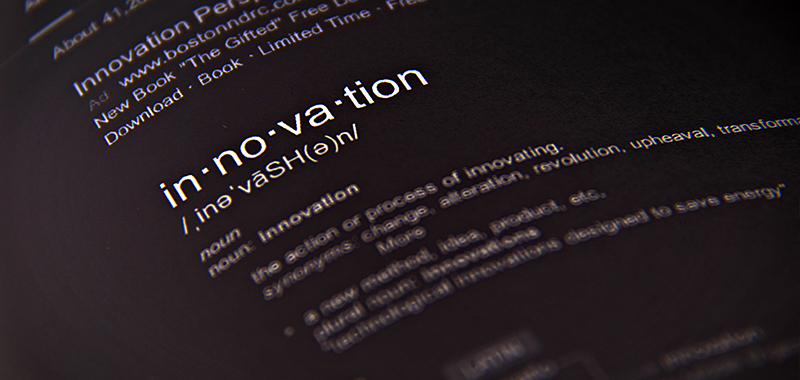
Stop boring software-trainings!
Let's not kid ourselves. Nobody wants dreary and uninspiring training and only very few are fully motivated when they hear that a Learning Management System (LMS) is involved.
If then unclear task and team structures are added, the enthusiasm is ultimately gone.
This is exactly where Sarah Hillmann wants to help. She has been working for imc in Melbourne for over four years as a Business Consultant and Training Specialist. One of her main tasks is to introduce customers to the IMC Learning Suite, the company's own LMS, in an informative and entertaining way.
In this interview, she talks about challenges opportunities, and the mistakes customers should avoid before purchasing a Learning Management System (LMS).

Interview partner
Sarah Hillmann
Consultant & Trainings Specialist at imc in Melbourne, Australia
Hello, Sarah, glad you're here. You've completely revamped the concept of imc Learning Suite training. How is it going so far? What did you change?
The old training consisted in a three-day training course with everyone who will later work with the LMS as administrator in different roles. It must be said that the administrators are, for example, HR employees or working in other specialist departments, i.e. people without an IT background.
Some of them see such a system for the first time during the training, which can be a bit intimidating. They have the fear or even expectation that they would have to learn everything about the LMS within three days; which is of course completely unrealistic. The training sessions themselves then consisted mainly of lots of slides, which was a bit of a blow for many customers.
My goal was to pick up the customer where he is and familiarise him with the system step by step. For this purpose, I developed the "Learning Suite Champion Path", which is held directly in the LMS and consists of several steps.
How exactly is the newly designed training now structured?
At the beginning, the customer receives a welcome e-mail with all information about the next training courses and a link to our customer portal. Next, there will be a kick-off webinar for training planning with all administrators. Here we will ask what the priority are, what the expectations are and what the admins' areas of responsibility are.
It is very important that really every single future Learning Suite Champion is present, who will later work with the system, so we can truly optimize the training.
Often customers cannot really estimate in advance which functions they need. In addition, prior to the training there was often only contact with the project manager, who sometimes has different ideas than the training participants.
Afterwards, the participants have time to explore the customer portal, the "Learning Connect Academy". There is an online course which prepares them as well as possible for the Basic Training. The course includes a video series, exercises, quizzes, training slides and other useful documents.
This is where a change of perspective takes place, so to speak, and the person who later creates or enters training courses slips into the role of the learner. This enables administrators to better structure learning paths and create tailor-made content. The participation in this course is the basis for all further trainings and the course can also be watched again, in case personnel changes and new admins must be trained.
A little later the Basic Training will follow. This stretches over two days of face-to-face courses in which we look at and explain the system together with the customer. This is not without theory, because the customer must understand and master the most important functions and features of the Learning Suite. However, there are always practical exercises.
After the Basic Training we offer a final webinar. In terms of time, this should not be held immediately after the Basic Training, so that the information can settle down and the participants have enough time to explore the LMS themselves and to practice.
This last webinar is virtually a scenario-based workshop in which we work with the customers to find out which individual learning scenario is best suited for them and which functions they can use to create it.
In summary, the main learning objective of the Basic Training is to be able to create and manage learning content. The future champions should then be able to know the functions and the system to such an extent that they feel confident to explore it on their own.
What happens when the admins have mastered all the basics?
In addition to the Basic Training, which in the future every customer will receive automatically, there is the Advanced Training, which can be held either as face-to-face training or web session. In the Advanced Training, we look at a specific customer scenario, take another close look at the functions that can be used for this purpose and work out a solution together with the team.
Let's say, the customer would like to be trained in blended learning strategy. Then we consider together with the customer how we can best approach the topic and which functions are best suited for its implementation. I give tips and try to provide inspiration and best practice examples. In many cases, the customer doesn't know exactly what he/she needs or better: what is available.
My colleagues and I, therefore, act more as sparring partners than trainers for the customer in these sessions. Often there are many paths that lead to the goal and we must find out which path is best suited for the particular customer.
Are these new trainings only available for new customers, or also for existing ones?
Partly. The Advanced Trainings can also be booked by existing customers. We are currently in the process of rolling out the training worldwide and the consultants in all countries are now beginning to orient themselves to the new strategy.
Each consultant can adapt the training flexibly, because not every customer is the same and some projects are significantly more complex than others. We are therefore eagerly awaiting feedback from colleagues and, of course, customers.
What does it all cost? Are there fixed prices per course, or can packages be booked?
For new customers the Basic Trainings are included in the price. Existing customers can request training packages or individual courses in the Learning Connect Portal and then receive an offer. This depends on the complexity of the topic, because individual topics can be approached very differently.
There is also a consulting package that is very flexible. For example, we held 1.5-hour web sessions a week for three months with a major customer here in Australia, and in these sessions, we addressed exactly those topics where the customer needed support and presented the corresponding functions and features.
What are the biggest challenges for you as a trainer and for the customer?
e challenge for us is to make a boring software training course as exciting and intuitive as possible. The customer should have fun and we must convey our knowledge in such a way that the logic of the system becomes clear and the customer also knows how versatile and flexible the system is.
But such a high degree of flexibility also requires a very high degree of complexity. This is an opportunity on the one hand, but also a challenge for every admin on the other. Therefore, it is also part of our task to take away the fear of the system from the customer.
To what extent does the Learning Connect Portal continue to support the customer after the training sessions?
The portal is our knowledge platform, so to speak. Apart from course bookings and courses themselves, customers can also watch various videos, read release notes and find out everything about upcoming webinars. The portal is a kind of Wikipedia for the LMS and has a catalogue function that can be used to search for functions.
In addition, customers can exchange information among themselves in the admin forum. It happens often that a customer can help another customer because he/she has had a similar problem before. This is extremely helpful and valuable.
Can you tell us your top 3 tips for all those who want to buy an LMS?
- Define requirements: The first and most important thing for me: You must know which requirements your LMS has to fulfil. How complex are my scenarios? It depends on this question how complex the LMS must be.
The more flexibly the system can map processes, the more complex it is, of course. Here you have to think carefully about what you need. When in doubt, you should also get advice on this, otherwise you will end up with a system that is either too complex or cannot meet your requirements. - Clarify care and support: The second would be to pay attention to how well you are looked after. How do the training courses run, what does the support look like, and generally how am I guided through the implementation?
- Define team building and responsibilities: This may not seem obvious at first glance, but I think it's very important. Often admin teams are thrown together wildly, and it is not clear who is responsible for what.
For example, who is the system owner and contact person for other administrators? If the team is not clearly defined, misunderstandings occur again and again, which in the end also cost unnecessary time and money.
What would be your wish for the future regarding imc training?
I would like to implement our blended learning strategy even better in order to train customers in the best possible way. I would like us to continue standardizing training on a global level and to be known not only for our products and projects but also for our training.
Sarah Hillmann is developing new training methods to help imc's customers get to know the Learning Management System in a more interactive and playful manner.

Courage to the LMS - also as SME!
Not only big companies should have the courage to go for a Learning Management System (LMS). In our interview Christian Mai from S&G Mercedes Benz, tells about his experiences with rolling out an LMS in a Small and Medium Enterprise (SME).

The big e-learning glossary
WBT, SCORM, Predictive Analytics, Blended Learning - uh, what? The first two articles in this series are a glossary for those who have felt lost in the e-learning jungle of abbreviations and technical terms.

More information about the LMS
If you would like to find our more about the Learning Management System of imc, please find all information here.